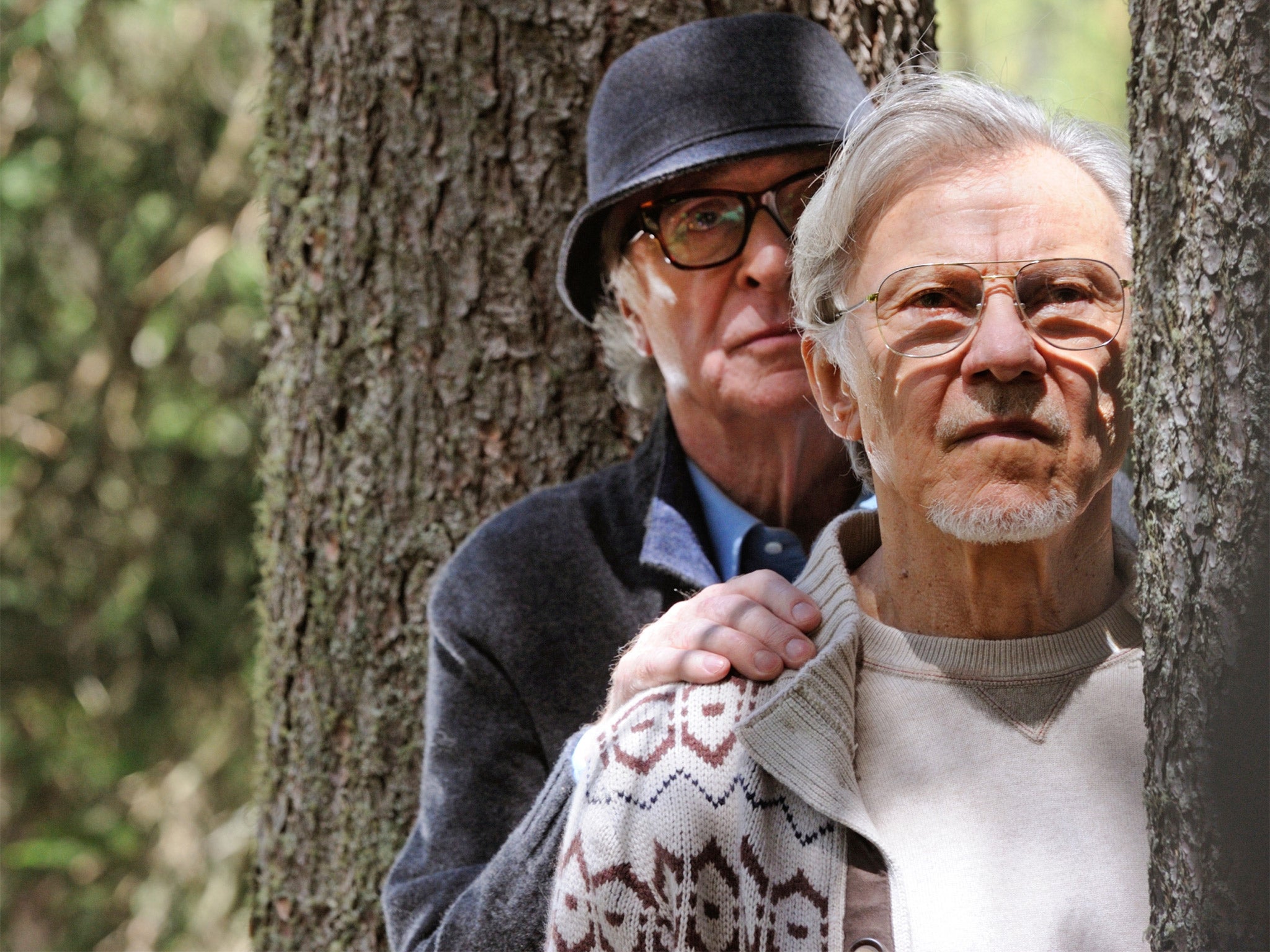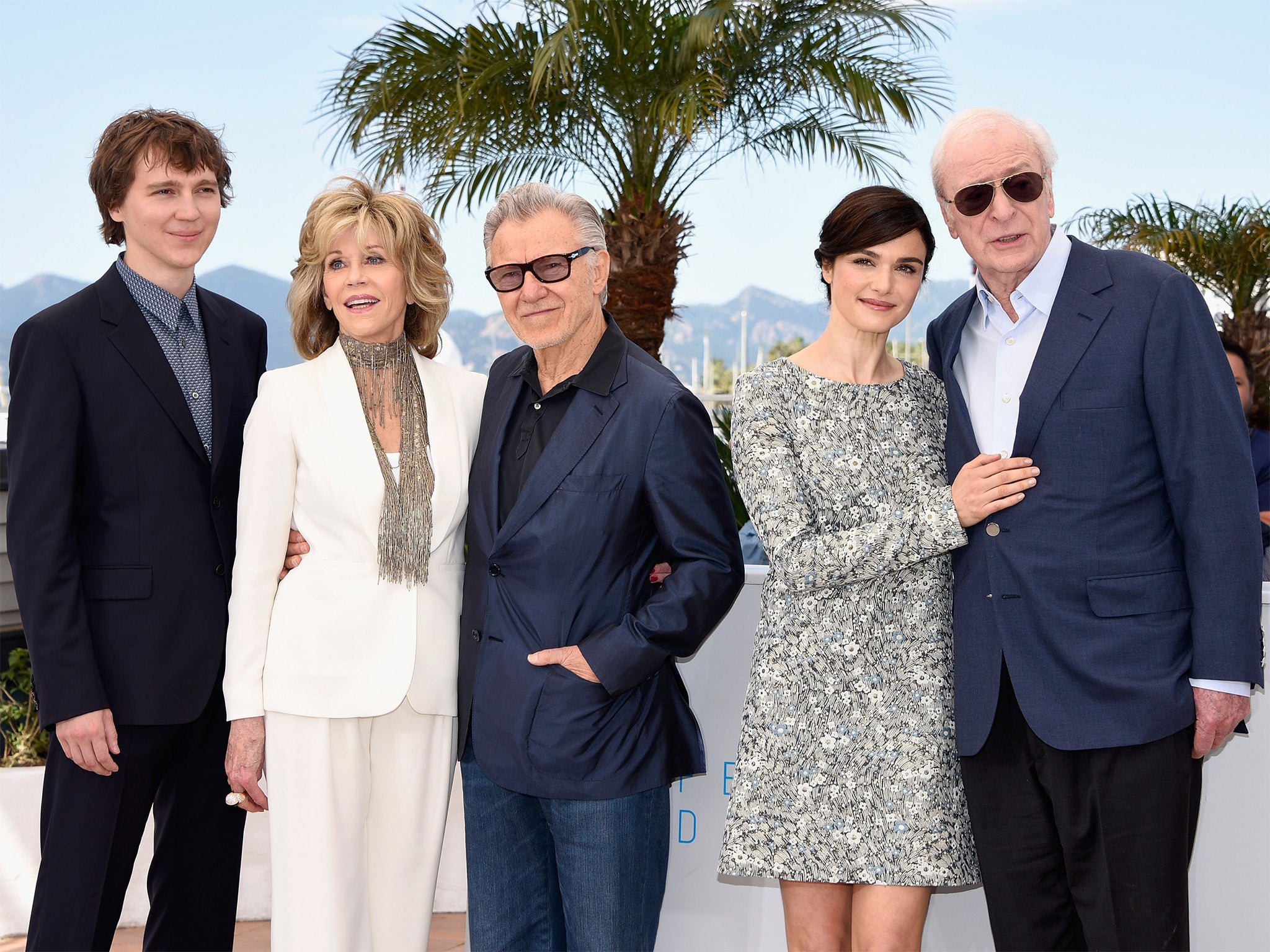Youth, Cannes film review: Michael Caine stakes his claim to an Oscar with the best film so far at the festival
The film seemed to split the audience between boos and cheers at the end of it’s Cannes screening, but for my money it is the standout of the festival thus far

Michael Caine and Harvey Keitel star in this beautiful ode to music and cinema. They play friends of 60 years standing, who are enjoying a stay at a hotel in the foothills of the Alps. Retired composer Fred Ballinger (Caine) and film director Mick Boyle (Harvey Keitel) discuss old flames, their children, and the activities of the assortment of guests holidaying in Switzerland.
Fred is asked to play one of his compositions at a music concert for the Queen. He refuses and if there is anything resembling a plot, it’s the question of whether Fred will eventually agree or not. Caine, whether wandering the hills with Keitel, swimming with Miss Universe or helping young violinists improve their style, gives his best performance in decades. He could well win an Oscar.
Caine tells his distraught and recently separated daughter Lena (Rachel Weisz): “Music is all I understand, you don’t need words and experience to understand it, it just is.” The same could be said about the structure of this filmic symphony.

Music has always been a strong element of Paolo Sorrentino’s films: the magnificent dance scene at the start of The Great Beauty; and in This Must be The Place, Sean Penn’s role as a wealthy rock star bored by retirement. Sorrentino is a regular prize-winner at Cannes and Youth should be the film that finally sees him take home the Palme d’Or.
The film plays like it’s been split into a series of songs, some better than others that come together to create a great album. It opens with a classic Sorrentino pan, a camera circling like a revolving door around a character, here a singer. There are a series of musical interludes with songs ranging from pop classics to opera with Palamo Faith, Mark Kozelek and Sumi Jo all playing themselves.
Sorrentino also shows his love of cinema through film director Mick. He has a team of screenwriters helping him write “Life’s Last Day” for his muse of 53 years and 11 films Brenda Morel (Jane Fonda). They discuss the screenwriting process and plot devices and character development. A film star is also staying in the hotel, played by a mustachioed Paul Dano and discussions on the state of cinema ensue.
This is France of course, the home of auteur cinema, which dictates that films are a representation of the director, and never does it appear to be truer than here.
This film really appears to be peering inside the director’s mind and it’s chaotic and fascinating. Most bizarre are the fictional representations of real-life characters who infatuate him, including surreal musings on Diego Maradona, Hitler, a levitating Buddhist and a veiled Arab woman. Youth may take place in one location but Sorrentino brings the world to it.
There are elements of Fellini and Bill Forsyth’s Local Hero in the mix of nostalgia, musings on contemporary life and anecdotes. The story is told so far in the abstract that it never feels trite.

Watch Apple TV+ free for 7 day
New subscribers only. £8.99/mo. after free trial. Plan auto-renews until cancelled.
ADVERTISEMENT. If you sign up to this service we will earn commission. This revenue helps to fund journalism across The Independent.

Watch Apple TV+ free for 7 day
New subscribers only. £8.99/mo. after free trial. Plan auto-renews until cancelled.
ADVERTISEMENT. If you sign up to this service we will earn commission. This revenue helps to fund journalism across The Independent.
The film seemed to split the audience between boos and cheers at the end of it’s Cannes screening, but for my money it is the standout of the festival thus far.
Join our commenting forum
Join thought-provoking conversations, follow other Independent readers and see their replies
Comments